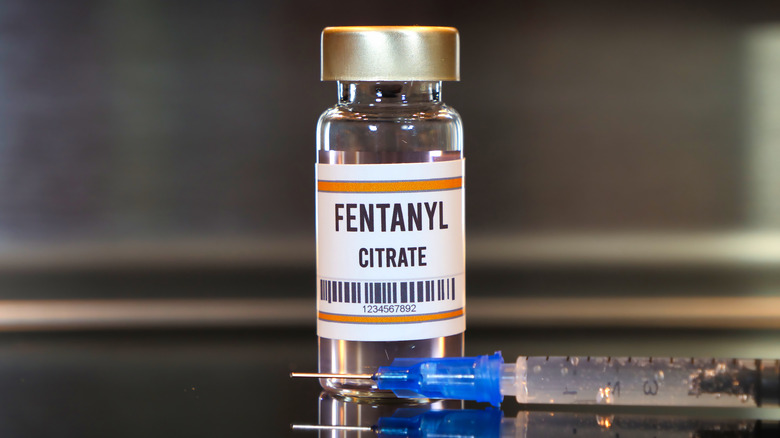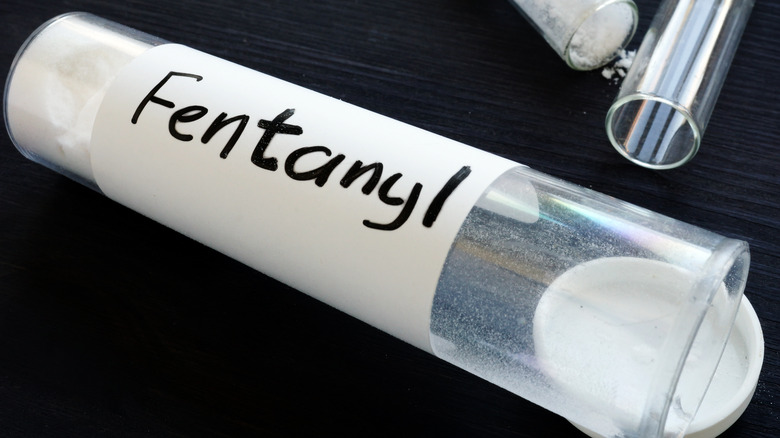Why Fentanyl-Laced Drugs Are More Dangerous Than Regular Drugs
For as long as illegal drugs have been a thing, drug dealers have been known to increase their profit margins by "cutting" — that is, adding something to the drug to stretch the dealer's profit margin, as BBC explains. For example, a gram of cocaine sold on the street might be "cut" with .2 grams of laundry detergent or powdered milk, meaning that the buyer winds up with .8 grams of cocaine and .2 grams of nothing, and the dealer still gets a profit as if he sold a gram of coke.
Another form of "cutting" involves adding another drug to the drug the dealer is selling. This is particularly true when it comes to opiates, according to the Centers for Disease Control and Prevention. Dealers who sell heroin or other powerful opiates will "cut" their product with fentanyl, a powerful, synthetic form of the drug that can extend the potency of the substance being sold, giving the user their high while allowing the dealer to sell less product for the same price.
Unfortunately, fentanyl is powerfully addictive, and it's hideously easy to overdose on it.
Fentanyl is 50 times stronger than heroin, 100 times stronger than morphine
According to USA Today, fentanyl was developed in the late 1950s as a painkiller and a synthetic alternative to opiate-derived drugs like morphine. It activates the same opioid receptors in the brain as its counterparts, and it works — almost too well. So powerful is the drug that, by the CDC's estimates, it's 50 times more powerful than heroin and 100 times stronger than morphine. Indeed, a fatal overdose of fentanyl can fit on the tip of a pencil.
Of course, fentanyl soon found its way out of hospitals and pain clinics and onto the streets, and it became popular with dealers looking to extend the potency of their product. Now, 60 years later, and in the midst of an opioid epidemic, fentanyl is making things worse. It's a leading cause of overdose death in the U.S., and between March 2020 and March 2021, nearly 100,000 Americans overdosed on the drug. One such American was actor Michael K. Williams of "The Wire," who died from a fentanyl overdose in 2021 (per The Daily Mail).

